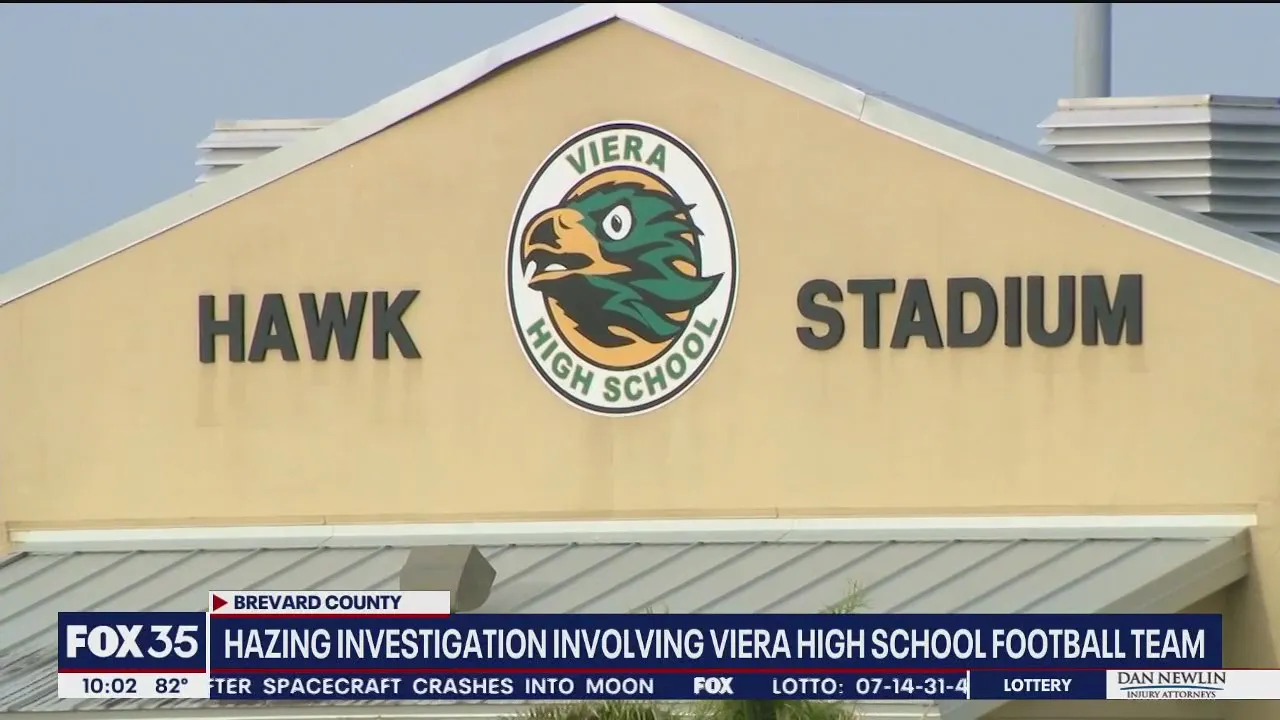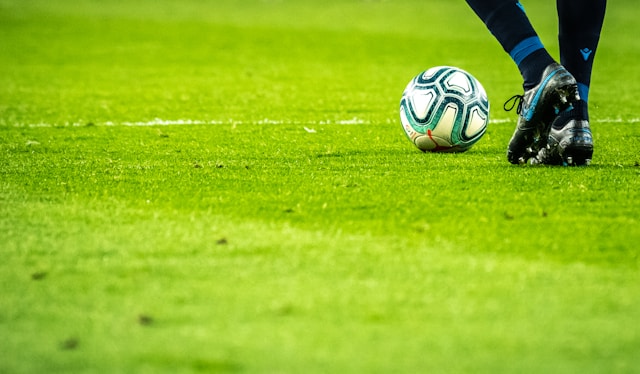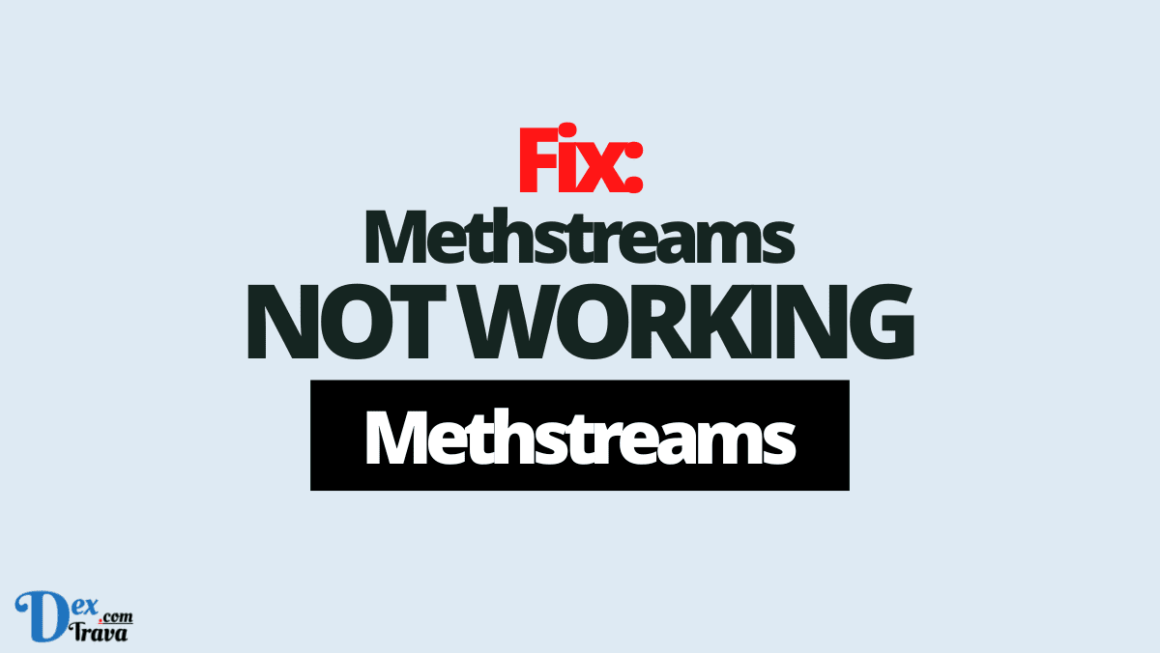Introduction
In the fall of 2023, a disturbing video surfaced, sending shockwaves through the tight-knit community of Viera, Florida. The video depicted a horrific instance of hazing within the Viera High School Football Hazing Video team, raising urgent questions about the culture of sports teams and the safety of students in schools across the nation. This article delves deep into the incident, exploring its background, implications, and the steps taken to address the issue.
Background of Viera High School
Viera High School, nestled in the heart of Brevard County, has long been known for its strong academic programs and competitive sports teams. The football program, in particular, has enjoyed a storied history, with numerous championship titles under its belt. However, like many schools, viera high school football hazing video has not been immune to controversy. Previous incidents, though not as egregious as the hazing video, have prompted discussions about the culture within the school and its sports programs.
Unveiling the Hazing Video
The hazing video came to light through social media channels, where it quickly went viral, sparking outrage and disbelief. In the video, members of the football team were seen subjecting younger players to humiliating and degrading acts as part of an initiation ritual. The graphic nature of the footage shocked the community and prompted immediate action from school administrators, law enforcement, and advocacy groups.
Understanding Hazing in Sports
Hazing, defined as any activity expected of someone joining a group that humiliates, degrades, abuses, or endangers them regardless of a person’s willingness to participate, is unfortunately not uncommon in sports teams. In the high-stakes world of competitive athletics, the desire to belong and prove oneself can sometimes lead to harmful behaviors. Hazing can take many forms, from harmless pranks to outright abuse, and its effects on victims can be profound and long-lasting.
Legal and Ethical Implications
The revelation of the hazing video raised serious legal and ethical questions about the responsibilities of schools and sports programs in preventing such incidents. While hazing is illegal in many states and against school policies nationwide, enforcement and accountability have often fallen short. Schools must not only adhere to legal requirements but also uphold ethical standards that prioritize the safety and well-being of students above all else.
Investigation and Accountability
In the wake of the video’s release, Viera High School launched a thorough investigation into the incident, working closely with law enforcement agencies to identify the perpetrators and hold them accountable. The school’s swift and transparent response garnered praise from many in the community, signaling a commitment to addressing the issue head-on and ensuring justice for the victims.
Impact on the Victims
The victims of the hazing incident, young players who had joined the football team with dreams of camaraderie and success, were left traumatized and disillusioned. Interviews with the victims and their families revealed the profound emotional and psychological toll of the abuse they endured. Many struggled to trust others and cope with feelings of shame and betrayal, highlighting the urgent need for support services and resources to aid in their recovery.
Reactions from the Community
The revelation of the hazing video sent shockwaves through the Viera community and beyond, prompting a wide range of reactions from parents, students, and alumni. While some expressed disbelief and outrage, others spoke out in support of the victims and called for accountability and reform within the school’s sports programs. The incident sparked a broader conversation about the culture of sports teams and the need for systemic change to prevent future incidents.
Addressing Systemic Issues
As the community grappled with the aftermath of the hazing incident, attention turned to the deeper systemic issues that may have contributed to its occurrence. The culture of sports teams, characterized by a hierarchy of power and a desire for conformity, can sometimes foster environments where hazing thrives. Coaches and team leaders play a crucial role in shaping this culture and must be held accountable for promoting positive values and behaviors among their players.
Healing and Moving Forward
In the aftermath of the hazing incident, the focus shifted to healing and rebuilding trust within the Viera High School community. Counseling and support services were made available to victims and their families, providing a safe space for them to process their experiences and begin the journey toward healing. The school also implemented new policies and procedures aimed at preventing future incidents and fostering a culture of respect and inclusivity.
Lessons Learned
The hazing incident at Viera High School served as a wake-up call for schools and communities across the country, highlighting the urgent need to address the pervasive issue of hazing in sports teams. As school administrators, coaches, parents, and students grappled with the fallout from the incident, important lessons were learned about the importance of vigilance, accountability, and empathy in creating safe and supportive environments for young athletes.
Preventing Hazing in Schools
Moving forward, preventing hazing requires a multifaceted approach that involves education, enforcement, and cultural change. Schools must take proactive steps to educate students and staff about the dangers of hazing and provide clear reporting mechanisms for victims to come forward safely. Additionally, fostering a culture of respect and inclusivity within sports teams can help prevent hazing from taking root and ensure that all students feel valued and supported.
Holding Institutions Accountable
Institutions must also be held accountable for preventing hazing and responding effectively when incidents occur. This includes advocating for stricter anti-hazing policies, promoting transparency and accountability in reporting, and fostering collaboration between schools, parents, and community members to create safer environments for student athletes.
Supporting Victims and Survivors
Supporting victims and survivors of hazing is paramount in helping them heal and move forward from their experiences. Access to legal and mental health resources is essential for addressing the immediate and long-term effects of hazing trauma. Additionally, creating safe spaces for victims to share their stories and connect with others who have experienced similar situations can provide much-needed support and validation.
The Role of Media and Public Opinion
The media plays a crucial role in shaping public perception and driving change on issues like hazing in schools. By reporting on incidents responsibly and ethically, journalists can raise awareness about the prevalence and consequences of hazing and hold institutions accountable for their actions. Public opinion, fueled by media coverage, can also pressure schools and lawmakers to take meaningful action to prevent hazing and ensure the safety of student athletes.
Conclusion
The hazing incident at Viera High School was a sobering reminder of the dangers posed by unchecked behavior within sports teams and the urgent need for action to prevent future incidents. By addressing the root causes of hazing, promoting accountability and support for victims, and fostering a culture of respect and inclusivity, schools can create safer environments where all students can thrive.
FAQs (Frequently Asked Questions)
- What exactly is hazing?
- Hazing is any activity expected of someone joining a group that humiliates, degrades, abuses, or endangers them, regardless of their willingness to participate.
- Are there specific laws against hazing?
- Many states have laws against hazing, and most schools have policies prohibiting it. However, enforcement and accountability vary.
- How common is hazing in high school sports?
- Hazing occurs in various forms and degrees across high school sports teams, though exact prevalence rates are difficult to determine due to underreporting.
- What should I do if I suspect hazing in my school?
- If you suspect hazing in your school, it’s essential to report it to school authorities or trusted adults immediately. You can also reach out to organizations like StopHazing for guidance and support on how to address the situation effectively and safely.
- How can parents support their children if they are victims of hazing?
- Parents can support their children by listening to them without judgment, validating their experiences, and seeking professional help if needed. It’s crucial to provide a safe and supportive environment where children feel comfortable sharing their feelings and seeking help.
- What are some warning signs of hazing behavior?
- Warning signs of hazing behavior may include secretive or exclusive group activities, sudden changes in behavior or mood, unexplained injuries, and reluctance to participate in sports or team activities. It’s essential to pay attention to any signs that suggest a student may be experiencing hazing and take appropriate action.
- How can schools prevent hazing incidents from occurring?
- Schools can prevent hazing by implementing clear anti-hazing policies, providing education and training on hazing prevention, fostering a culture of respect and inclusivity, and enforcing consequences for those who engage in hazing behavior.
- What role does peer pressure play in hazing?
- Peer pressure can play a significant role in hazing, as students may feel pressured to participate in harmful activities to gain acceptance or approval from their peers. Schools must work to create environments where students feel empowered to resist peer pressure and speak out against hazing.
- Are there any positive aspects of team initiation rituals?
- While some may argue that team initiation rituals foster camaraderie and team spirit, it’s essential to distinguish between harmless traditions and harmful hazing behavior. Positive team-building activities should never involve humiliation, abuse, or endangerment of participants.
- How can alumni contribute to preventing hazing in their former schools?
- Alumni can contribute to preventing hazing by speaking out against it, supporting victims, and advocating for positive change within their former schools. By sharing their experiences and promoting a culture of respect and inclusivity, alumni can help create safer environments for current and future students.



